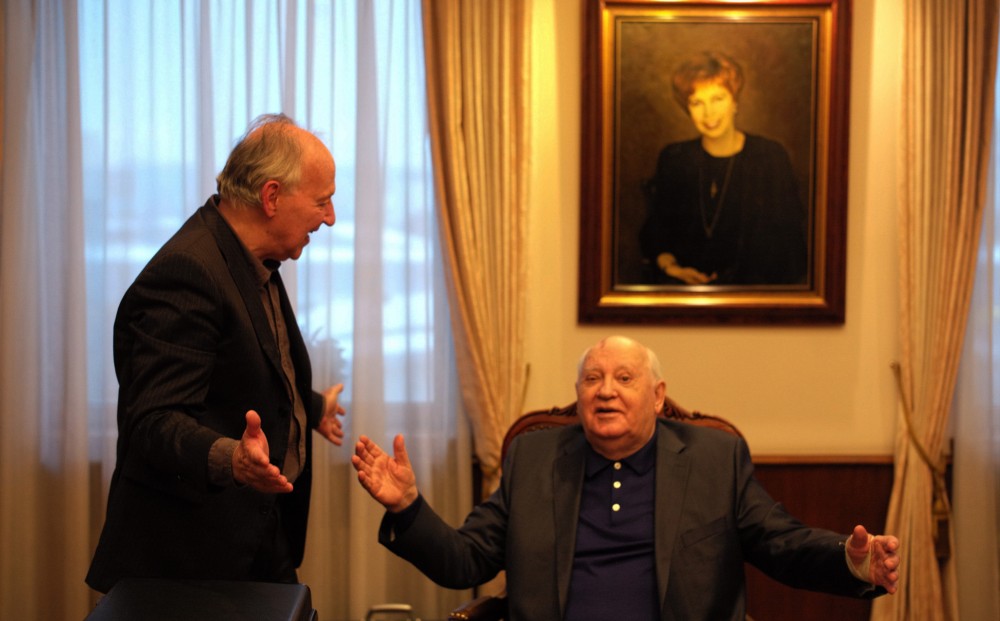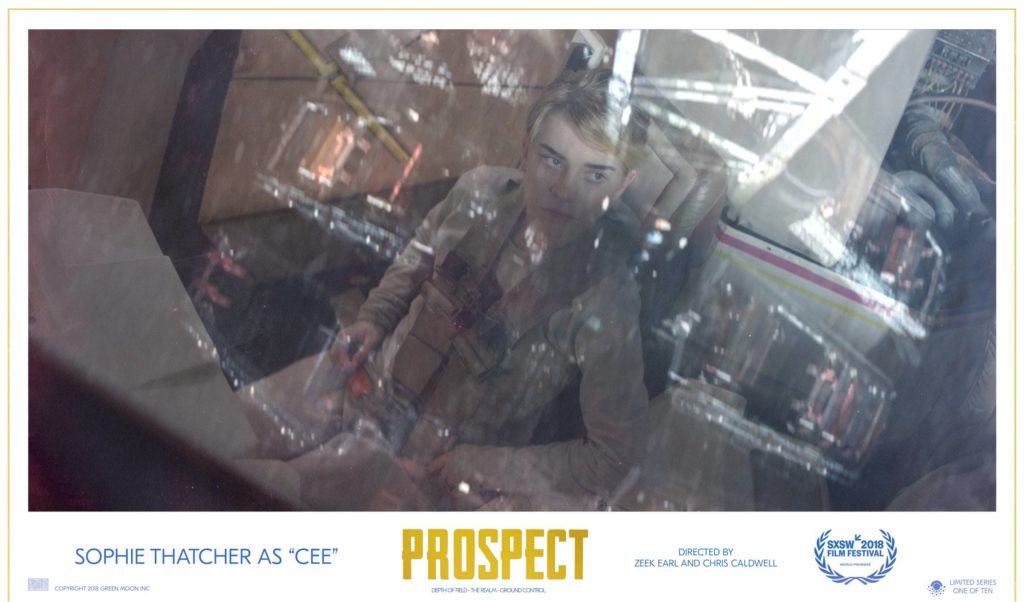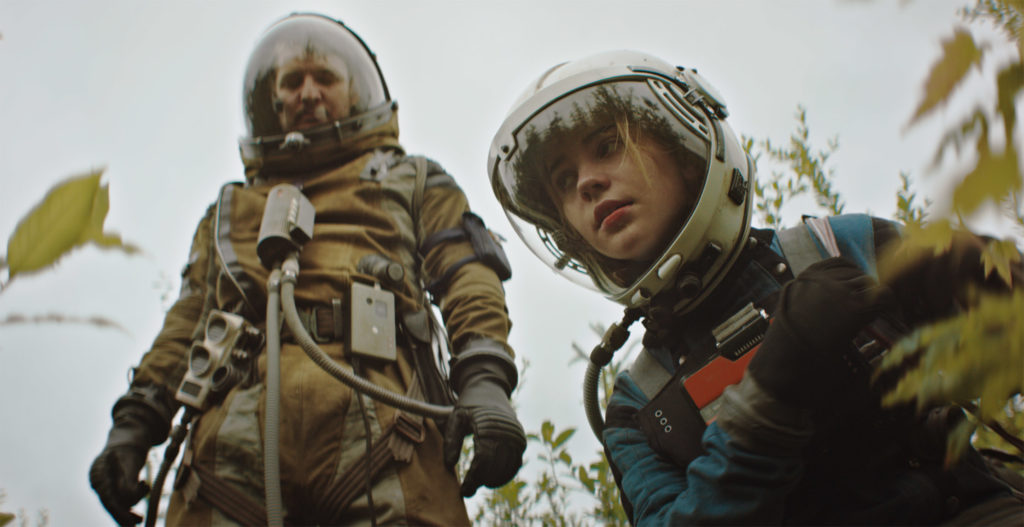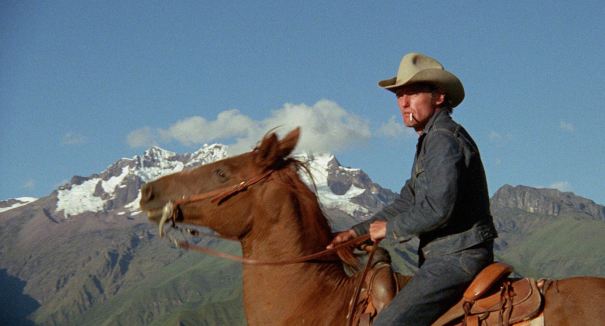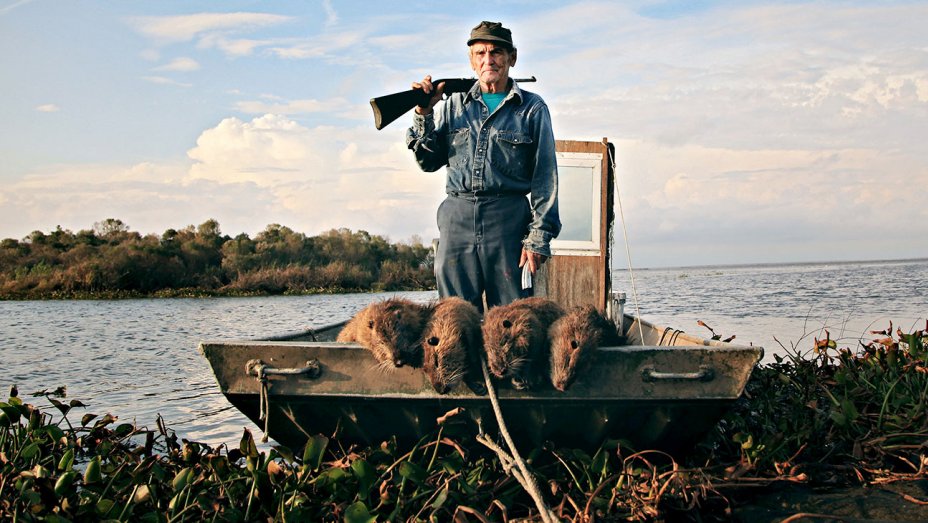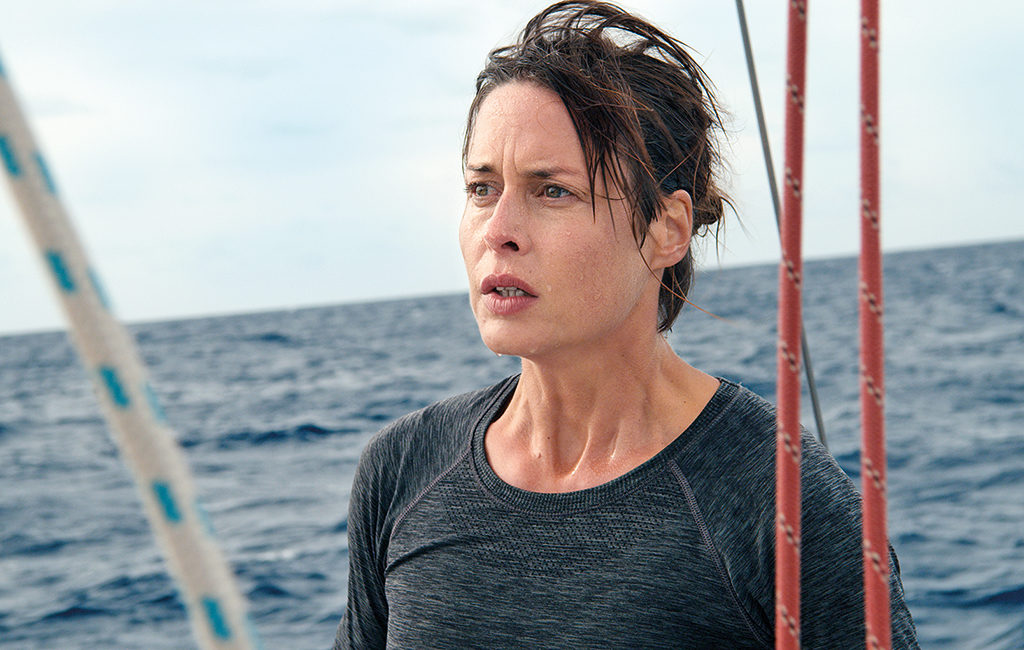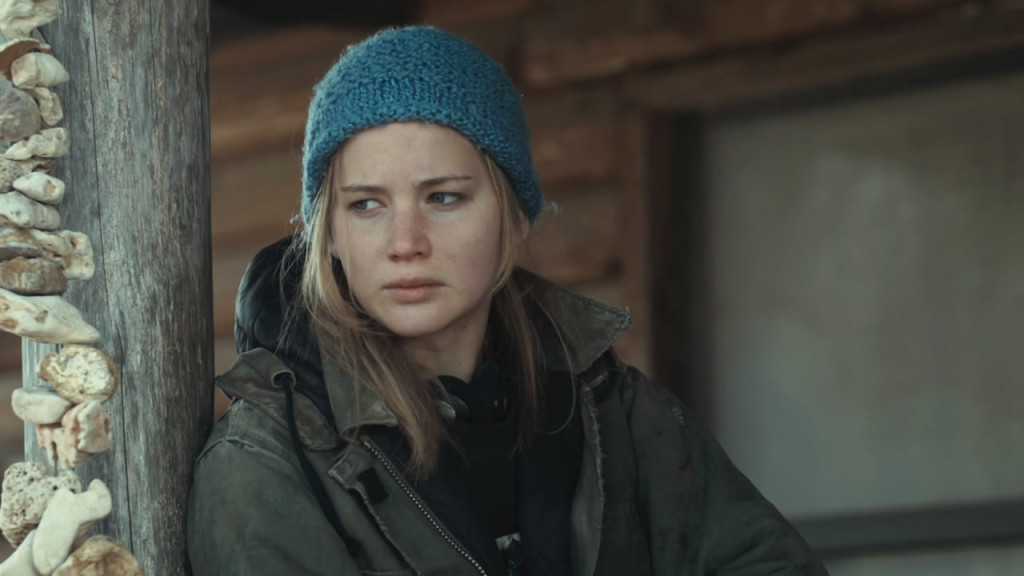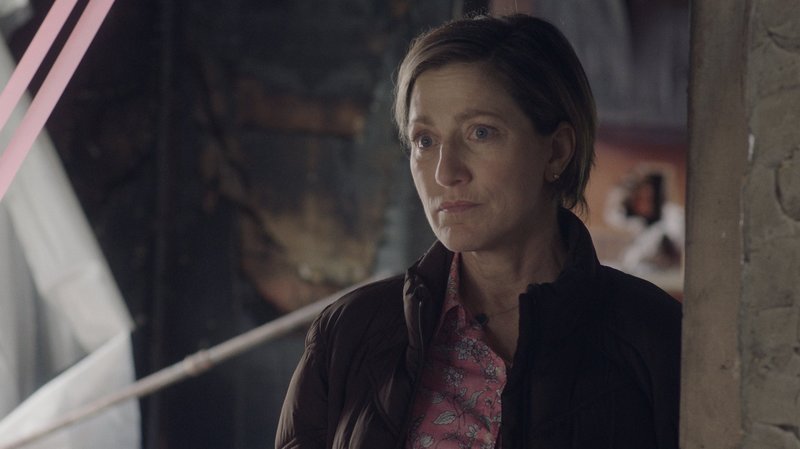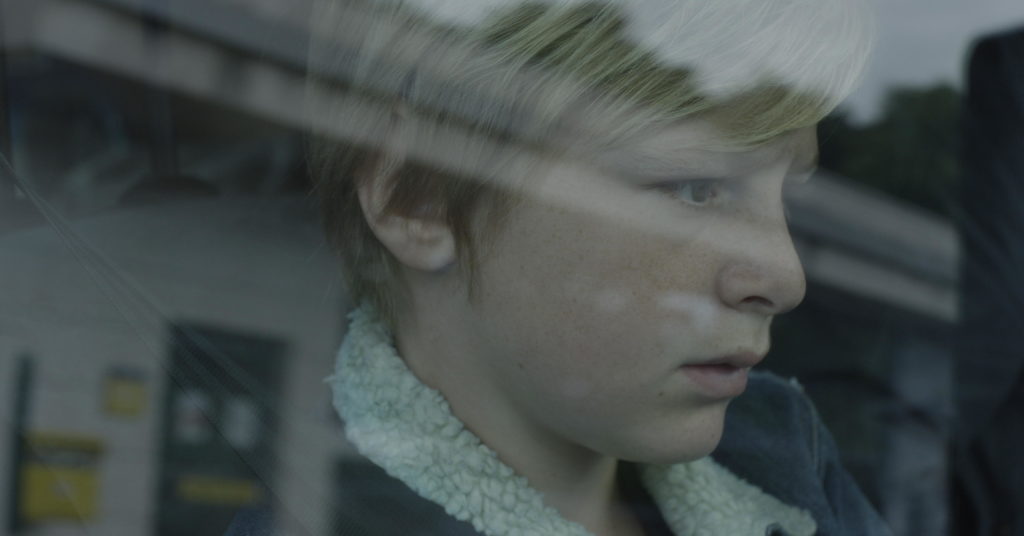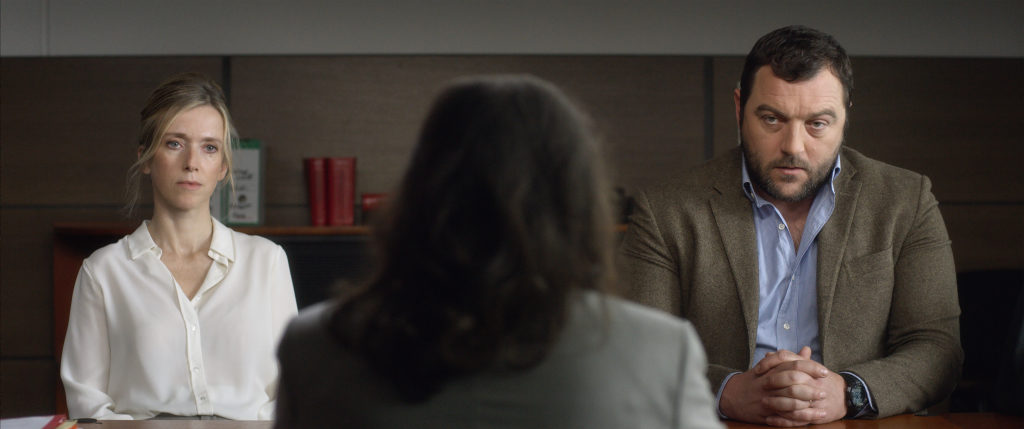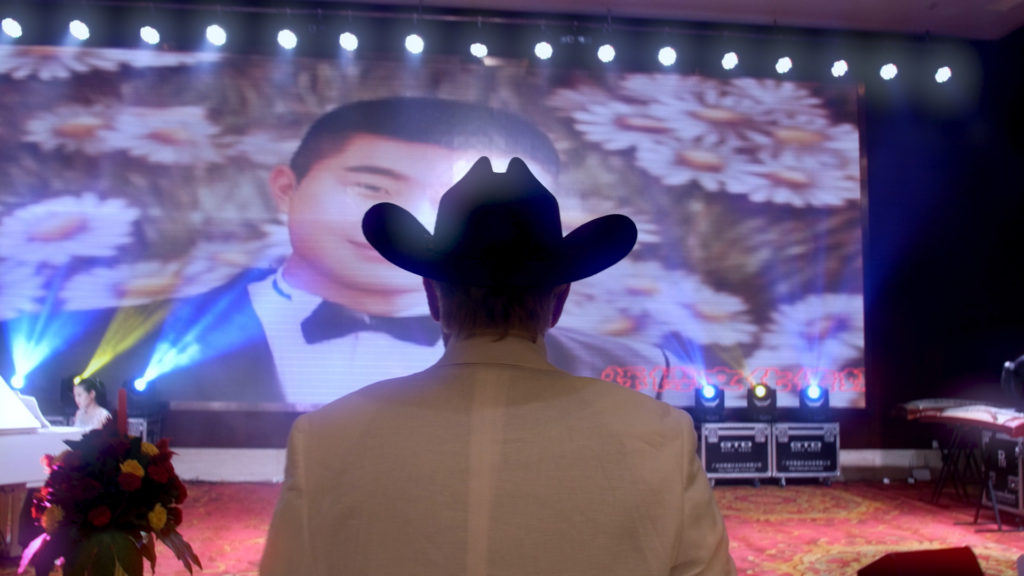
In John Maringouin’s inventive satire Ghostbox Cowboy, we first meet Jimmy (David Zellner) in an American store, gazing at that aisle in every Walgreens or CVS that is filled entirely with crappy plastic gizmos made in China. We later learn that he’s thinking, “somebody is getting rich making this stuff and that person should be me.”
Wearing a cowboy hat for effect, Jimmy takes his small nest egg to the capitalist frontier of China and tries to re-invent himself as an entrepreneur. He has the prototype for an absolutely phony product, which he tries to pitch to young Chinese capitalists. Jimmy thinks that he can outsmart the locals because he is an American, but the joke is on him – he’s now the dumbest guy in China.
Jimmy doesn’t bother to learn any Mandarin, so he leans on or two shady, super-marginal ex-pats (Robert Longstreet – just great – and Specialist) to help him navigate the local scene. One of his “buddies” fleeces him, and Jimmy is hired by contemptuous Chinese when they need a Caucasian stand-in. As Jimmy is stranded near Mongolia, Ghostbox Cowboy gets mystical, and the cringe humor gives way to the surreal.
The filmmaking itself is a remarkable story. Ghostbox Cowboy was shot in the massive boomtowns around Dongguan, Guangzho and Shenzhen (each a city with a population between 8 and 15 million). Because the Chinese government frowns on critique cinema, Maringouin had to shoot on the sly, guerilla style. To photograph the illegal factories that manufacture knock-offs, he pretended to be a potential investor. Maringouin and his two SAG actors spent ten days in China, essentially pretending not to shoot a movie.

I saw Ghostbox Cowboy at Cinema Club Silicon Valley, with a Q&A with writer-director-camera operator John Maringouin. Bay Area filmmaker Maringouin wanted to focus on White entitlement, with a protagonist who adds no value of his own but imagines that he should still be “a participant” in China.
Ghostbox Cowboy was selected to play the Tribeca film festival and earned a NY Times Critic’s Pick. Ghostbox Cowboy can be streamed on Amazon (included with Prime).


